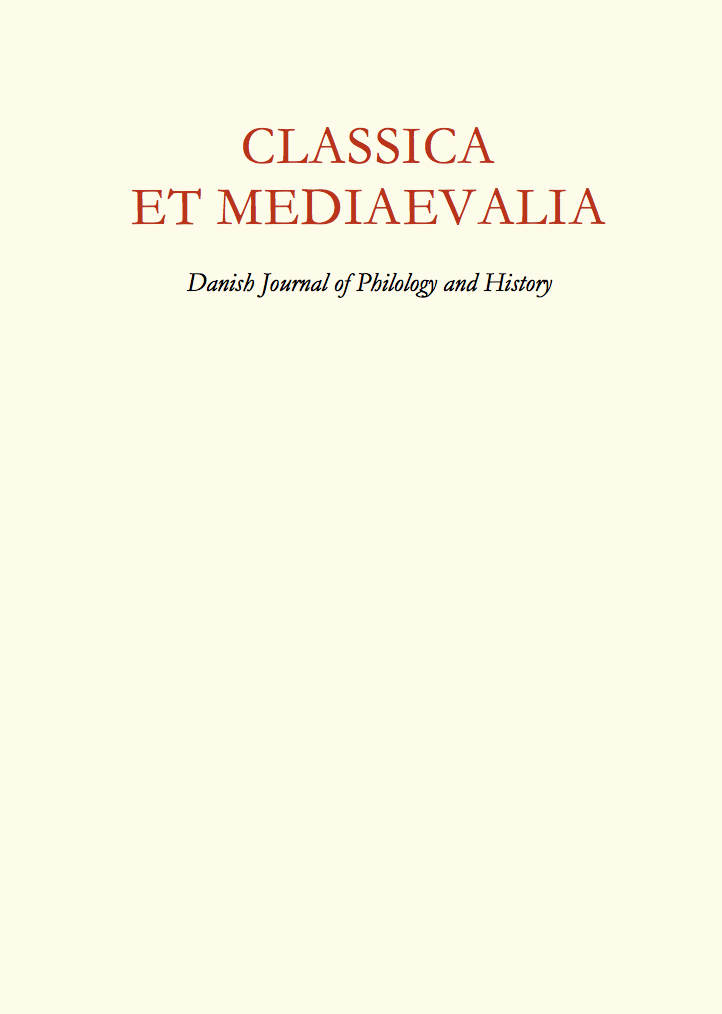Lucretius and the Salty Taste of Sea Air
DOI:
https://doi.org/10.7146/classicaetmediaevalia.v69i0.124703Abstract
This article treats the sense of taste in Epicurean thought through the evidence in Lucretius’ De rerum natura. It reconstructs Lucretius’ account of what taste is and how it works, with a view to explaining instances like the taste of salt by the seaside, where we seem to taste at a distance. I argue that such instances are not exceptions, but examples that reveal more about the processes behind them. When analyzed in conjunction with the physiology of taste and the water cycle, the salty taste of sea air confirms the traditional view that the perception of flavor consistently occurs through direct contact with the object of perception, not through indirect contact with an intermediary. Moreover, it advances the understanding of what comes into contact, what the perceiver contributes to taste, and taste’s sensory threshold.
Downloads
Published
How to Cite
Issue
Section
License
Authors who publish with this journal agree to the following terms:
- Authors retain copyright and grant the journal right of first publication with the work simultaneously licensed under a Creative Commons Attribution License that allows others to share the work with an acknowledgement of the work's authorship and initial publication in this journal.
- Authors are able to enter into separate, additional contractual arrangements for the non-exclusive distribution of the journal's published version of the work (e.g., post it to an institutional repository or publish it in a book), with an acknowledgement of its initial publication in this journal.
- Authors are permitted and encouraged to post their work online (e.g., in institutional repositories or on their website) prior to and during the submission process, as it can lead to productive exchanges, as well as earlier and greater citation of published work (see The Effect of Open Access).





